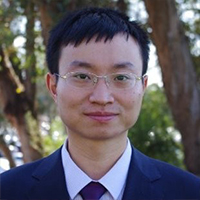You are here
Geographic Mobility and Parental Co-residence Among Young Adults
Working Paper*, Mar 15, 2019
This paper connects two empirical trends: (i) the decline in geographic mobility and responsiveness to labor demand shocks, even among young adults who have historically been the most mobile, and (ii) the increased share of young adults co-residing with parents. Using data on young adults aged 18 to 35 from the American Community Survey and the Panel Study of Income Dynamics, we examine three outcomes: parental coresidence, transitioning out from living with a parent, and “boomerangs” - returning to live with a parent after living elsewhere. Our results demonstrate the importance of the parental coresidence option in understanding the location decisions of young adults. In particular, we find evidence that boomerang decisions may be insensitive to the labor market conditions that come with returning to the parents’ home, hence boomerang moves are more likely to result in residing in a labor market with higher unemployment rates. This raises some concerns for the future labor market prospects of young adults, particularly Hispanic young adults aged 18 to 23 years old and black young adults of any age, whose boomerang moves showed the greatest likelihood of being towards weaker labor markets.

Sewin Chan
Sewin Chan is an economist who studies economic and financial risks faced by households. Her research includes mortgages and housing market risk, consumer credit behavior, housing for older people, the responsiveness of workers to financial retirement incentives, the impact of job loss at older ages, and Medicare enrollment decisions. Dr. Chan currently serves on the New York City Age Friendly Commission’s Working Group on Housing, and was previously a member of the U.S. Department of Labor’s Advisory Council on Employee Welfare and Pension Benefit Plans. She holds a B.A. from Cambridge University and a Ph.D. in economics from Columbia University.

Katherine O'Regan
Katherine O'Regan is Professor of Public Policy and Planning at NYU Wagner. She also serves as Faculty Director of the Master of Science in Public Policy Program and Faculty Director of the Furman Center for Real Estate and Urban Policy. She spent April, 2014-January, 2017 in the Obama Administration, serving as the Assistant Secretary for Policy Development and Research at the Department of Housing and Urban Development. She holds a Ph.D. in economics from the University of California at Berkeley and spent ten years teaching at the Yale School of Management prior to joining the Wagner faculty in 2000. She teaches courses in microeconomics, poverty, program evaluation, and urban economics, and has received teaching awards from Berkeley, Yale, and NYU.
Her primary research interests are at the intersection of poverty and space --the conditions and fortunes of poor neighborhoods and those who live in them. Her research includes work on a variety of affordable housing topics, from whether the Low Income Tax Credit contributes to increased economic and racial segregation, to whether the presence of housing voucher households contributes to neighborhood crime rates. Recent work also includes several projects examining neighborhood transitions over the past few decades, including possible broad causes (changes in federal housing policy, and changes in crime, in particular), and outcomes (including possible displacement, and improvements in neighborhood conditions). Among others, she has served on the board of the Reinvestment Fund, the advisory board for NYU's McSilver Institute for Poverty Policy and Research, and the editorial board for the Journal of Policy Analysis and Management.

Wei You
Wei You is a Research Fellow at the NYU Furman Center. His research interests focus on migration, transportation, and urban economics. His work includes using archival data to quantitatively analyze historical cities and using spatial equilibrium models to evaluate contemporary migration policies. He completed his B.A. in Economics and Mathematics at Renmin University of China, M.A. in Economics at Peking University, and his Ph.D. in Economics at the University of California, San Diego in 2017.
*This working paper was made possible by the US 2050 project, supported by the Peter G. Peterson Foundation and the Ford Foundation. The statements made and views expressed are solely the responsibility of the authors.
